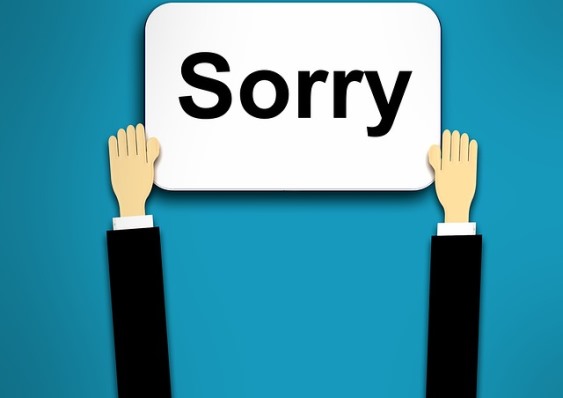In your organization, what happens when the leader makes a mistake? Do they promptly admit when they are wrong and make amends?
I’ve been thinking about this, and it seems to me that we may have lost the art of being wrong. And let’s face it: no one is immune from making a mistake. But, we can avoid making matters worse by taking appropriate action.
To be sure, mistakes vary in degree, and depending on the consequences, additional actions may be required, including consulting with a legal professional. But when we make an insensitive comment, send a message without having all the facts or consider how it will be received, or berate a subordinate (or colleague) publicly, we must promptly acknowledge our error and make amends. It’s time for a good apology.
Bad Apology for the Leader Mistake
A bad apology justifies or explains away our error. It paints a picture of why we did what we did or why we should be forgiven.
It might sound like: “I didn’t mean to ___, rather, I was only attempting to___”, or “This only happened because I thought ___, please understand where I’m coming from.”
Of course, trying to explain our actions is natural. But a bad apology rationalizes our error, even for the leader mistake.
Good Apology for the Leader Mistake
A good apology has four elements:
- Focuses on the other person(s) and how they have been affected by your mistake. It doesn’t assume you know how they feel or what they need, rather, it asks. When leaders truly listen—and do not argue—they open the door to making real amends.
- Takes responsibility. It doesn’t distribute, dilute, or delegate responsibility. It acknowledges an error and remorse. A good apology sounds like: “I am sorry. I was wrong.”
- Makes amends. After listening and understanding how other(s) were impacted, it addresses what can, is, and will be done to correct the mistake.
- Builds trust. After reflection and identification of lessons learned, it communicates what you will do differently in the future.
When this topic comes up in my coaching conversations, we talk about the importance of reflection, without obsession. Understand how you contributed to the mistake without getting hung up on on “woulda, coulda, shoulda.” This type of thinking is not uncommon when the stakes are really high and we take on full responsibility for the error (rightfully or not). If this happens to you, a qualified coach can help you break the cycle of rumination and get back on track with productive self-reflection.
What do you think? In your organization, what happens when the leader makes a mistake? I’d love to hear from you. You can reach me here, on LinkedIn, or give me a call: 561-582-6060.

Did You Enjoy This Article?
Join thousands of other smart business owners like yourself & get our Proffittable Times newsletter.
It's filled with actionable content you can apply immediately.
Sign up now to get started!
– Coach Nancy










